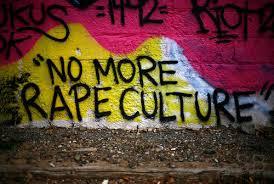 This year, you can spread awareness during Sexual Assault Awareness Month without ever having to leave your keyboard. Ever since the word “hashtag” made its way into Merriam-Webster dictionary, it seems we can no longer ignore the power behind the little symbol, once known as the “pound sign.” Online activism is trending now and what better way to spread awareness about sexual violence than through the power of the internet. In a world where social media is so pervasive, we invite you to participate in SAAM and use your hashtags to advocate for the end of sexual violence.
This year, you can spread awareness during Sexual Assault Awareness Month without ever having to leave your keyboard. Ever since the word “hashtag” made its way into Merriam-Webster dictionary, it seems we can no longer ignore the power behind the little symbol, once known as the “pound sign.” Online activism is trending now and what better way to spread awareness about sexual violence than through the power of the internet. In a world where social media is so pervasive, we invite you to participate in SAAM and use your hashtags to advocate for the end of sexual violence.
U sing the #SAAM or #SAAM2015 hashtags not only increases awareness to those who follow you, but also connects you with other activists in the movement. Take to Twitter to share the news and inspirational tweets of fellow advocates. See below for details on an Anti-Street Harassment Tweetathon on April 14, where you can be a part of a global event, 140 characters at a time.
sing the #SAAM or #SAAM2015 hashtags not only increases awareness to those who follow you, but also connects you with other activists in the movement. Take to Twitter to share the news and inspirational tweets of fellow advocates. See below for details on an Anti-Street Harassment Tweetathon on April 14, where you can be a part of a global event, 140 characters at a time.
 Of course, Twitter isn’t the only outlet to paint the town teal. The National Sexual Violence Resource Center (NSVRC) is challenging Instagram users to a #30DaysOfSAAM Instagram contest. Follow them on Instagram @nsvrc to see each week’s challenge posted. Below is an image of the challenge for week one of SAAM. Good luck!
Of course, Twitter isn’t the only outlet to paint the town teal. The National Sexual Violence Resource Center (NSVRC) is challenging Instagram users to a #30DaysOfSAAM Instagram contest. Follow them on Instagram @nsvrc to see each week’s challenge posted. Below is an image of the challenge for week one of SAAM. Good luck!
 Another way to stay involved is through our Facebook page. There you can find links to events, related articles, photos, and news from the Center during #SAAM2015. Invite your friends to like our page. Be sure to RSVP to the different events we’re hosting this month and invite your friends to those events as well.
Another way to stay involved is through our Facebook page. There you can find links to events, related articles, photos, and news from the Center during #SAAM2015. Invite your friends to like our page. Be sure to RSVP to the different events we’re hosting this month and invite your friends to those events as well.
Continue reading SAAM Online Activism: Use Your Hashtag for Good


 In honor of
In honor of  If you’re a fan of
If you’re a fan of 
 Being introduced to the concept of rape culture changed everything. It changed my understanding of television, music, jokes, laws, and even language. When asked to write a primer for rape culture, I assumed it would be a simple task. Surely, I had been using the term for years, since taking a Women’s Studies 101 course at UNC. It took the better part of a week, however, to even start this overwhelming blog post.
Being introduced to the concept of rape culture changed everything. It changed my understanding of television, music, jokes, laws, and even language. When asked to write a primer for rape culture, I assumed it would be a simple task. Surely, I had been using the term for years, since taking a Women’s Studies 101 course at UNC. It took the better part of a week, however, to even start this overwhelming blog post.
